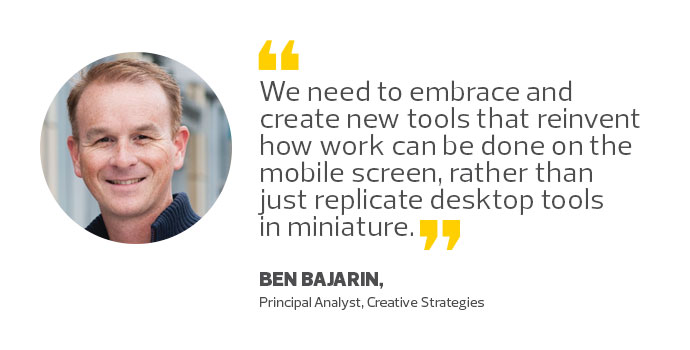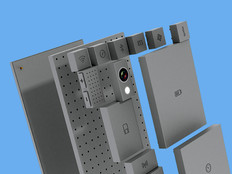How Businesses Can Turn Smartphones into Productivity Powerhouses
The technology industry likes to move in predictable cycles — one that’s in play right now with smartphones in the workplace. New markets generally go through a hardware phase, where rapid innovations drive market adoption. They then move to the software phase, where more innovations quickly come to market and take advantage of those aforementioned hardware advancements. Finally, they move to the services phase, where innovations come more from services than from hardware or software.
With smartphones, we’re quickly approaching the end of the hardware cycle, which means we are looking more to innovations in software and services going forward.
Most businesses have fully embraced and implemented smartphones across their enterprises, alongside PCs in most cases. There is no longer much debate over which hardware to support, or which operating systems. Now, it’s time to start focusing on how to give employees the tools they need to get their jobs done on the smartphones of choice that they bring into the workplace.
Reinventing How Work Gets Done
There is no question in my mind that the smartphone presents a unique opportunity for work because of its portability alone. We typically have them with us at all times, and therefore we can work in most places. But in corporate environments today, organizations tend to simply duplicate desktop tools for mobile devices, with very little re-engineering or thought about process.
We need to embrace and create new tools that reinvent how work can be done on the mobile screen, rather than just replicate desktop tools in miniature. Two areas primed for this are voice-driven user interfaces (UIs) and artificial intelligence (AI).

The voice UI, or chatbot, is a technology predominantly used on mobile devices. Our research found that 65 percent of people have used a voice-based interface on a smartphone, but only 23 percent have used a voice-based query on a PC. It’s the unique nature of the smartphone — a mobile device often used in places (such as cars) where the hands are occupied — that makes voice an opportunity.
We see encouraging trends for voice tasks on mobile, such as checking and responding to email, looking for documents and files, setting calendar items and scheduling meetings. Many things that businesses would count as “productivity” have begun tapping into voice-based user interfaces.
Artificial intelligence also will likely drive new trends in how we work, as companies embrace Big Data analytics and machine learning, and then turn those insights into actionable information on a spectrum of devices.
The AI Future
When AI pairs with a mobile device as a digital mobile assistant, the mobile computer has the potential to evolve into a smart companion — not just a tool. Thanks to the work of Apple with Siri, Google with "Ok Google" and other innovations, we are poised to see expanded use of this smart-assistant technology on mobile devices. Adopting these smart digital agents for productivity and enterprise use would be a wise move for IT managers.
Recognizing the mobile device as a central enterprise work tool and understanding the unique role it can play for employees is the starting point. People don’t want to sit at a desk all day, and as workflow tools such as voice UIs and AI become more user- and mobile-friendly, businesses will be able to truly harness the productivity potential of all those smartphones in their employees’ pockets.









